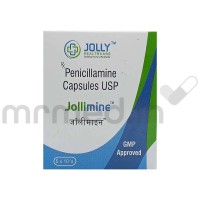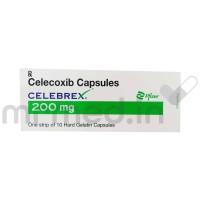Solu medrol 125mg injection is an anti-inflammatory drug belonging to the class of glucocorticoids, containing the active ingredient methylprednisolone. It is used to treat inflammatory or allergic conditions affecting the brain (caused by tumor or meningitis), lungs (caused by asthma, hypersensitivity, tuberculosis, or breathing in vomit or stomach contents), gut, and bowel (Crohn’s disease and ulcerative colitis). It treats rheumatic, skin, eye, and endocrine disorders. It is also used for the palliative management of cancers (leukemia and lymphoma) and the reduction of pain after surgery. In higher doses, it is used to treat flare-ups of symptoms of multiple sclerosis. This injection should not be used if you have a fungal infection, swelling of the brain due to malaria, traumatic brain injury, or if you recently had vaccinated or about to have any vaccination. The common side effects that are likely to occur with this medicine are headache, vision problems, poor wound healing, and bone weakness. Some serious side effects also include blood clots in the leg veins, lungs, and bleeding ulcers. Inform your healthcare provider if these side effects concern you or persist for longer than usual. Consult your doctor immediately for more advice.
This drug can increase the risk of certain eye problems, such as posterior subcapsular cataracts and glaucoma. These conditions can lead to vision loss if not treated properly. Additionally, corticosteroids can weaken the immune system, making individuals more susceptible to secondary ocular infections caused by fungi or viruses. Therefore, it is important to use corticosteroids at the lowest effective dose for the shortest possible duration to minimise the risk of these side effects.
If you experience any changes in your vision or eye discomfort while taking Solu medrol 125mg injection or any other corticosteroid, it is important to inform your doctor right away. Your healthcare provider will monitor your blood pressure, electrolyte levels, and kidney function closely while you are taking corticosteroids to prevent the side effects. In addition, all corticosteroids can increase calcium excretion, which can lead to osteoporosis and increased risk of fractures with prolonged use. Your doctor will prescribe calcium and vitamin D supplementation to help maintain bone health while taking corticosteroids. Tell your physician about all the medications you have been taking recently, including herbal medicines and supplements, before taking this injection.
Therapeutic Effects of Solu Medrol 125mg Injection
Pregnancy
Solu medrol 125mg injection is not recommended for pregnant women as it may cause fetal harm. Consult your doctor if you are pregnant or planning for pregnancy during the treatment. A dose adjustment is suggested.
Breast Feeding
Breastfeeding is not recommended in patients administered with a Solu medrol 125mg injection because it may harm your baby. Do not breastfeed during the treatment.
Lungs
It is not known whether Solu medrol 125mg injection can be administered to patients with lung problems. Consult your doctor if you have any lung diseases before starting the treatment.
Liver
Inform your doctor if you have any liver problems before taking Solu medrol 125mg injection. Regular monitoring of liver function tests is recommended.
Alcohol
Consuming alcohol may affect the effectiveness of Solu medrol 125mg injection. Stop consuming alcohol if you are taking this medicine.
Driving
It is unsafe to drive vehicles or operate heavy machinery after taking Solu medrol 125mg injection, it may cause dizziness and impair your concentration.
Serious
- Allergic reactions (wheezing, swelling of face, difficulty breathing)
- Stomach pain spreading to your back, accompanied by vomiting and loss of consciousness
- Bleeding ulcers
- Infections
- Blood clots in the lung (chest pain, coughing up blood, breathlessness)
- Raised pressure within the skull (lack of energy, drowsiness)
- Blood clots in the leg vein
Common
- High blood pressure, headache
- Swelling
- Ulcers
- Vision problems
- Poor wound healing
- Round or moon-shaped face
- Slow growth in infants, children, and adolescents
- Muscle and bone weakness
- Feeling depressed or high, difficulty in thinking, memory loss
- Acne, bruising
- Thinning of skin
It is generally unsafe to drive after receiving a Solu medrol 125mg injection. However, you may experience vertigo, dizziness, or drowsiness as a side effect, which may impair your ability to operate a vehicle or heavy machinery. It is important to wait until you feel fully alert and able to function normally before driving.
Solu medrol 125mg injection works by suppressing the immune system and reducing the production of certain inflammatory chemicals in the body. This can help reduce the symptoms of cancer and the side effects of cancer treatment, such as pain, swelling, and nausea.
Inform your doctor about your pre-existing conditions (heart, kidney, liver, hepatitis B, or lung disease) and vaccination history. It is necessary to consult a doctor if you are taking medicines for blood pressure.
Yes, Solu medrol 125mg injection is often used in combination with other chemotherapy drugs to improve treatment outcomes.
Solu medrol 125mg injection is not recommended during pregnancy and it is unsafe because it may harm a developing fetus. Women who are pregnant or planning to become pregnant should discuss their treatment options with their doctor immediately.
Avoid consuming alcohol while taking Solu medrol 125mg injection as it may increase the risk of stomach irritation and other side effects.
Molecule name: Methylprednisolone | Therapeutic class: Anti-inflammatory |
Pharmacological class: Glucocorticoids | Indications: 1. Treatment of allergic conditions 2. Rheumatic, blood, skin, eye, and endocrine disorders 3. Leukaemia and lymphomas (palliative management) 4. Pain related to surgery (organ transplants) 5. Multiple sclerosis 6. Ulcerative colitis |








